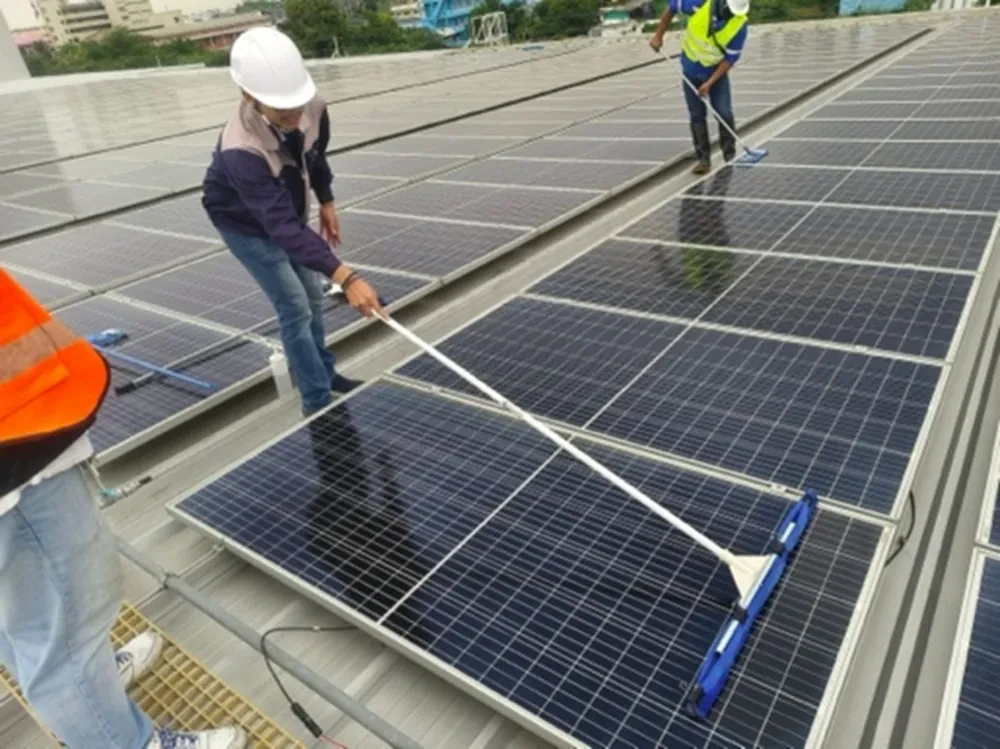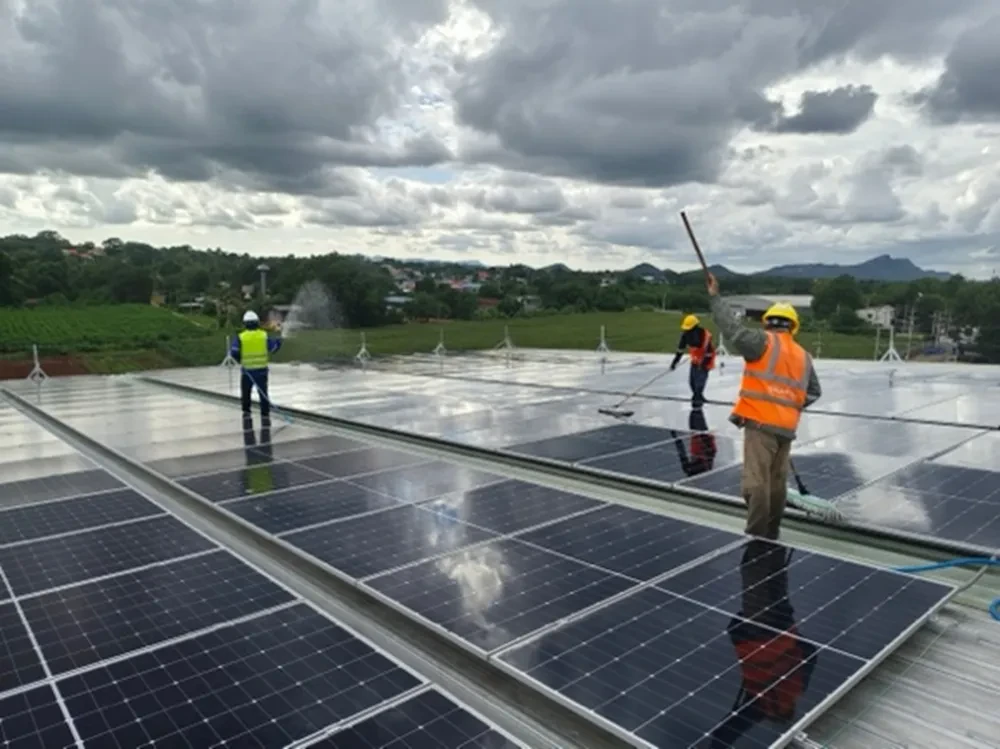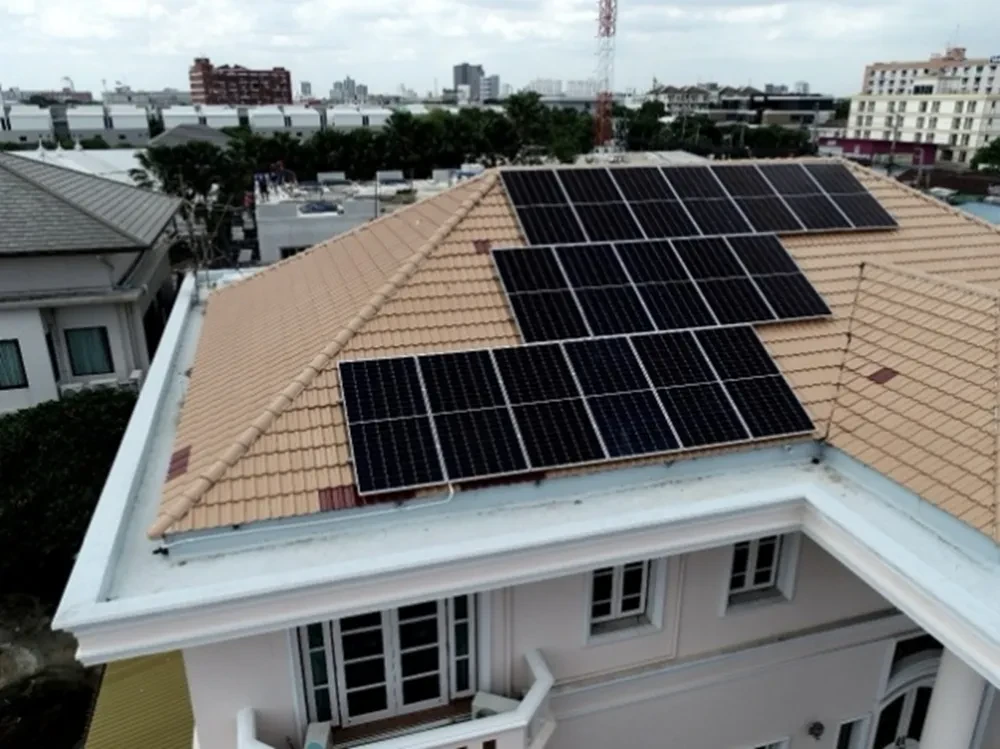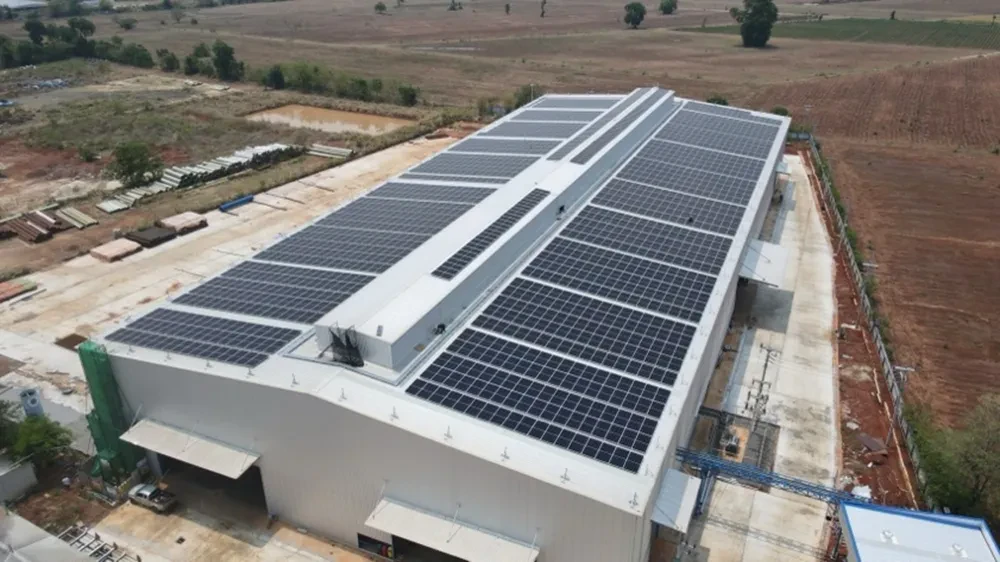Environmental
Nanocoating Solar Panel Innovation Project for Reduced Panel Washing Water Usage in Solar Farms
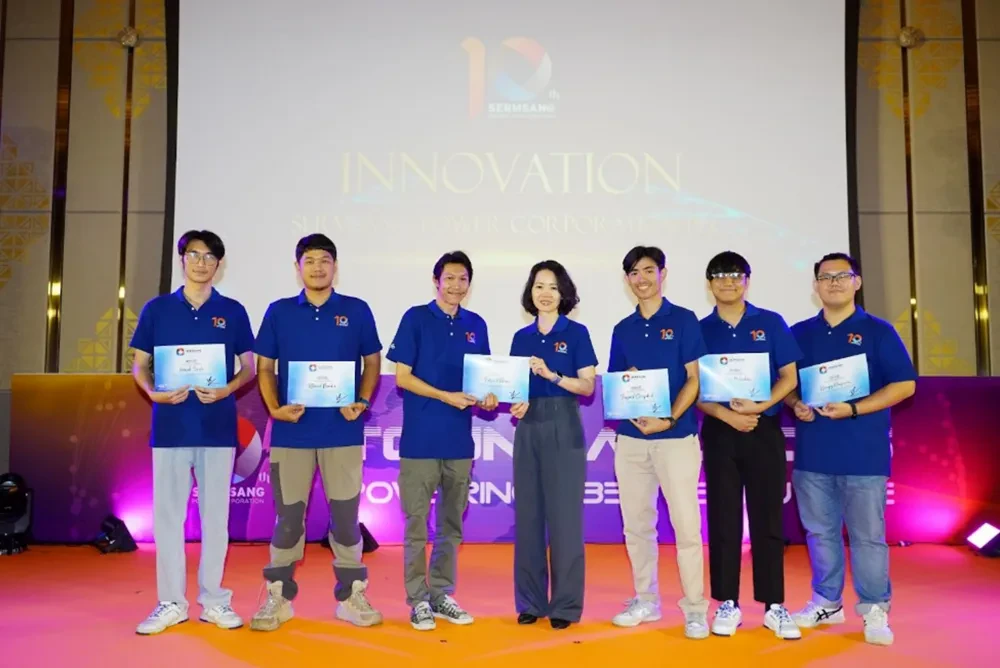
This project helps reduce dust adhesion on solar panels, enhancing electricity generation efficiency, decreasing the need for panel cleaning, and lowering maintenance costs. A special formula synthesizes the silica nanocoating for solar cell surfaces, boosting power generation by adapting the panel surface coating process from conventional spraying to silica nanocoating. This increases surface tension, reduces dust adhesion, and sustainably minimizes water usage for panel cleaning, ensuring efficient water resource management. The nanocoating, made from transparent silica nanoparticles, adheres well to solar panel surfaces and diminishes dust accumulation, a primary cause of reduced power generation efficiency. It is durable against Thai weather conditions, easing cleaning and maintenance burdens. Furthermore, the solar panel nanocoating contains no hazardous chemicals harmful to solar panel equipment or users and is environmentally non-toxic. This project is a collaboration with Nano Coating Tech Company Limited, a deep tech startup under the NSTDA startup program of NSTDA.
Nanocoating Solar Panel Product Prevents Soiling, Extends Lifespan, and Enhances Energy Production This involves the development and application of nanocoating technology, with the Group actively seeking collaborations with various companies, including Nano Coating Tech Company Limited, to optimize the nanocoating process for the company's solar panels for maximum efficiency. This results in nanocoated solar panel products with water and dust resistance, having no impact on the solar panel surface and maintaining the refractive index through the nanocoating equivalent to the panel's glass, thus not reducing electricity generation efficiency. Nanocoated solar panels can increase power generation by 2.3% (expected to rise to 3-5% average efficiency after one year of operation) compared to conventional panels and reduce panel cleaning frequency from 6 times every 2 years to just 1 time every 2 years. This also reduces water usage for cleaning and the risks associated with solar panel washing, especially for panels installed on high roofs. Additionally, the nanocoating is environmentally non-toxic. Nanocoated Solar Panel Innovation Prevents Soiling, Extends Lifespan, and Enhances Energy Production This innovation was initiated and developed internally within the Group through an open innovation strategy, involving the development of employees' innovation skills and capabilities, with implementation starting in June 2024.
Impact of Innovation Development Nanocoating Solar Panel Prevents Soiling, Extends Lifespan, and Enhances Energy Production
For the Group:
- Cost Reduction: Expected to reduce panel cleaning costs by 27% for commercial and industrial rooftop solar power system installation projects and by 56% for general residential projects.
- Efficiency Improvement: Increases electricity generation efficiency by 2.3% annually, or 32.71 kWh/kWp/year (expected to rise to 3-5% average efficiency after one year of operation) for a 703.1 kWp solar power plant.
- ลดการปล่อยก๊าซ CO2e: 12,072 kg CO2e/ปี โดยคำนวณจากโรงไฟฟ้าพลังงานแสงอาทิตย์ขนาดกำลังการผลิต 703.1 kWp
- Reduced CO2e Emissions: 12,072 kg CO2e/year, calculated from a 703.1 kWp solar power plant.
- Return on Investment: Expected return of 82,800 Baht per year per 703.1 kWp project, calculated from increased electricity generation of a 703.1 kWp solar power plant.
- Reduced Water Usage: Reduces water usage for solar panel cleaning by 80% compared to conventional cleaning processes.
- Safety: Reduces the risk of employees working at height from 6 times every 2 years to just 1 time every 2 years.
For the Environment:
- Water Conservation: Reduces the frequency of solar panel cleaning, significantly decreasing water consumption, which is crucial in water-scarce areas and promotes sustainable water resource management.
- Enhanced Renewable Energy Efficiency: Increased electricity generation efficiency allows for more clean energy production from existing infrastructure and reduces greenhouse gas emissions, directly supporting climate change mitigation.
- Reduced Chemical Usage: The coating reduces the need for harsh chemicals to clean solar panels, lowering the risk of soil and water source contamination.
- Extended Solar Panel Lifespan: Reduces wear and tear from frequent cleaning, extending the lifespan of solar panels, decreasing electronic waste, and lessening the environmental impact from the production and disposal of solar panels.
For Society:
- Improved Workplace Safety: Reduced frequency of solar panel cleaning lowers the risk of work accidents, especially for rooftop installations with high fall risks, and supports better workplace safety standards for maintenance personnel.
- Enhanced Energy Security for Communities: Increased power generation efficiency and reduced maintenance downtime ensure a more continuous and stable supply of clean energy for residential and commercial users.
- Promotion of Awareness Regarding Sustainable Operations: Demonstrating the success of this environmentally friendly technology will raise social awareness about sustainable energy practices and encourage wider adoption of eco-friendly concepts.
- Promotion of Domestic Technology and Innovation: Supports the beneficial use of domestically developed technology and innovation, including fostering the growth of Thai startups, thereby increasing the country's competitiveness.

